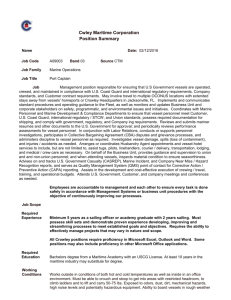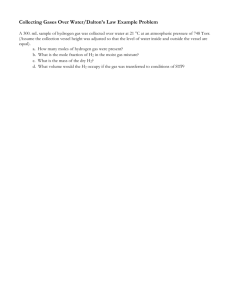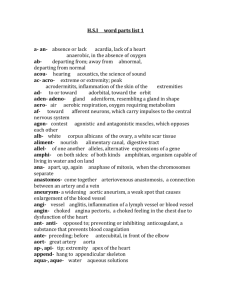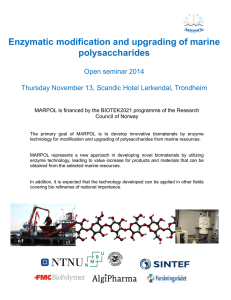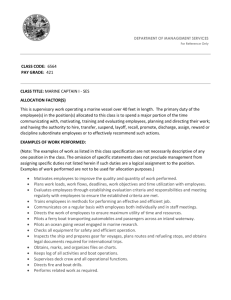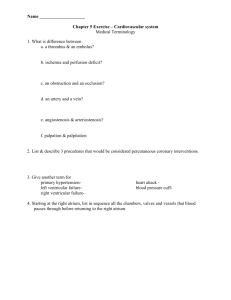Document
advertisement
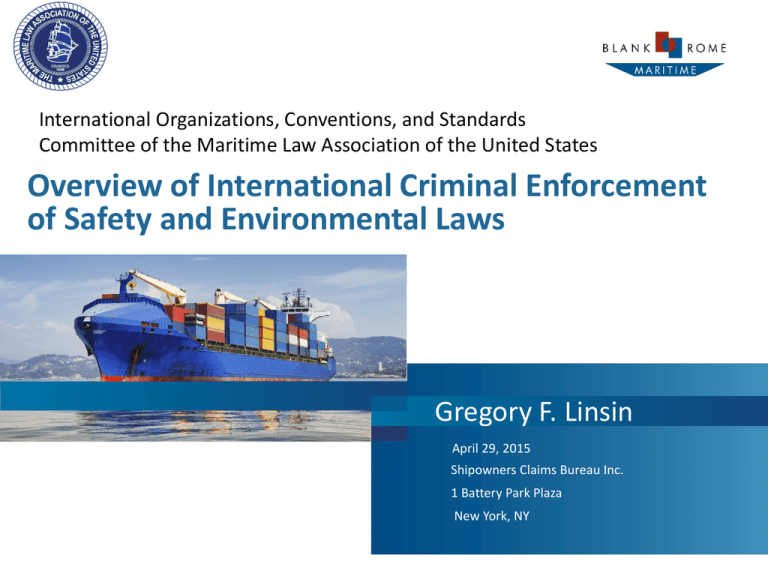
International Organizations, Conventions, and Standards Committee of the Maritime Law Association of the United States Overview of International Criminal Enforcement of Safety and Environmental Laws Gregory F. Linsin April 29, 2015 Shipowners Claims Bureau Inc. 1 Battery Park Plaza New York, NY Overview International Maritime Organization framework Criminal Cases based on International Conventions • Involve laws implementing or similar to MARPOL and other international conventions and regulations • By region: Oceania, Europe, North America and Asia Marine Casualties Involving Fatalities • • • • 2 M/V Queen of the North M/V Sewol – Sinking of South Korean ferry M/V Costa Concordia – Italian cruise ship disaster Macando Well Blowout International Maritime Organization Historic tension between safety/pollution prevention and sovereignty U.S. Port State Control regime; Paris MOU; Tokyo MOU A.1052(27) – Procedures for Port State Control • Appendix 2 contains specific list of detainable deficiencies A.1067(28) – Mandatory Audit Scheme • Into force in 2016 A.1068(28) – Mandatory Audit Scheme to use IMO Instruments Implementation Code 3 CRIMINAL ENFORCEMENT ACTIONS BASED ON INTERNATIONAL CONVENTIONS 4 Oceania Australia: Criminal Enforcement Under law Implementing MARPOL Annex V • M/V Hope Star – July 2012 Vessel discharged garbage in the Great Barrier Reef Marine Park. Owner fined AUD$5,000; Master fined AUD$300 • M/V Morning Midas – August 2012 Vessel discharged plastic mooring fine; failed to report. Owner fined AUD$5,000 • M/V Xin Tai Hai – April 2012 Fisherman spotted vessel dumping garbage; vessel tracking used Owner fined AUD$20,000; Master fined AUD$6,000 • M/V Pantanal– July 2011 Vessel discharged food waste in the Great Barrier Reef Marine Park Owner fined AUD$5,000; master fined AUD$500 5 Oceania Australia – Criminal Enforcement Under Law Implementing MARPOL Annex I M/V Magdalene – August 2010 • Vessel discharged mix of ballast water and HFO during deballasting • Spill significantly impacted the environment • Owner and Master pleaded guilty to violations of New South Wales’ “Marine Pollution Act” • Owner fined ASD$1.2 million plus prosecution costs • Owner also paid ASD$1.7 million in clean up costs 6 Oceania New Zealand • M/V Oyang 75 – August 2011 Fishing vessel discharged unfiltered bilge effluent into New Zealand waters Prosecution only brought charges for failure to notify under the Maritime Transport Act; owner was convicted and received NZD$10,500 fine • M/V Rena – October 2011 Container vessel grounded on Astrolabe Reef Charges and convictions under Maritime Act, Resource Management Act, criminal statute and general Master and second officer sentenced to months in prison 7 Transport New Zealand Defense Force 7 Europe United Kingdom • M/T Maersk Kiera – February 2012 Violation of Dangerous or Noxious Liquid Substances in Bulk Regulations, which implement MARPOL Annex II Unlawful discharge of palm oil slops and cleaning fluids within 12 nm Owner pleaded guilty and was sentenced to fines and costs totaling approximately £22,500 • M/V Ever Sigma – January 2013 Violation of Prevention of Oil Pollution Regulations, which implement MARPOL Annex I Rare exercise of flag State jurisdiction Vessel accidentally discharged HFO off Greek coast, but did not report the spill for 27 hours. Owner pleaded guilty and was sentenced to fines and costs totaling approximately £17,320 8 Europe Norway – M/V Full City – July 2009 • Bulk carrier owned and operated by COSCO ran aground in Norwegian waters, causing bunker oil spill • Prosecuted under Ship Safety Act and Pollution Control Act, rather than general criminal laws • Master convicted, but sentence commuted to probation; Third Officer acquitted on appeal France – M/T Deniz-S – November 2014 • Oil spill from Turkish-flag tanker near Le Havre was detected by helicopter and reported to French coast guard • French court found both Owner and Captain guilty of MARPOL violations • Owner fined €100,000 ; Captain fined €50,000 • Court assessed additional fine of €27,500 for damage to the environment, payable to environmental groups 9 Asia South Korea M/T Hebei Spirit – December 2007 - Crane barge being towed by tugs broke free and collided with the vessel - Collision caused spill of about 10,800 tons of crude oil; clean-up costs of $330 M - Captain and Chief Officer from the Hebei Spirit, two tug masters, and the barge captain charged with criminal negligence and causing marine pollution - Defendants convicted of criminal negligence and marine pollution - South Korean High Court overturned negligence convictions but maintained marine pollution convictions - The Two Tug masters convicted under Marine Pollution Prevention Act, sentenced ranged from 1-3 years; Crane barge master acquitted. 10 North America United States • 10 – 12 criminal MARPOL cases per year • US v. Sanford Ltd. Prosecution of fishing vessel owner and Chief Engineer MARPOL Annex I and obstruction of justice US sought forfeiture and fine of $75 million dollars $1.9 million fine; 3 months incarceration • US v. Noble Drilling (U.S.) LLC Prosecution of operator of drill rig for MARPOL Annex I, Ports and Waterways Safety Act, and related counts $8.2 million fine; $4 million community serv. payment 11 MARINE CASUALTIES INVOLVING FATALITIES 12 Macando Well Blowout United States v. BP • • • • • 11 seaman’s manslaughter counts Obstruction of Congress Clean Water Act Migratory Bird Treaty Act $4 billion dollar fine United States v. Nix; United States v. Rainey United States v. Kaluza and Vidrine • Two well site leaders; 22 manslaughter counts, one CWA • Seaman’s manslaughter statute applies only to those engaged in the marine operations, maintenance, or navigation of vessel 13 M/V Queen of the North Canada – March 2006 • Swedish flag Ro-Ro ferry vessel ran aground and sank; 2 people died • Vessel’s navigating officer charged with two counts of criminal negligence causing death. • Charged specifically with breach of Canadian Collision Regulations enacted under the Canada Shipping Act 2001, which implement and modify the International Regulations for Preventing Collisions at Sea (“COLREGS”) • Following jury trial, navigating officer was convicted and sentenced to 4 years in prison • Separate from criminal prosecution, sinking also caused spill of diesel fuel and lubricating oil, much of which was contained. Consequently, Canadian Environment Minister required Owner, BC Ferries and Canada Coast Guard to draft plan to ensure sunken vessel would not result in further unintended releases of oil. 14 M/V Sewol – South Korea Ferry Sinking • On April 16, 2014, a South Korean ferry sank, killing 304 people, including 250 high school students • Inexperienced officers took sharp turn • Illegal redesign and failure to secure cargo • Captain and Crew failed to properly evacuate passengers (no warning, no lifejackets) and abandoned ship • 5 month jury trial • 15 Captain – guilty of murder and violation of Seafarer’s Act, which requires Captain to remain on board C/E – guilty of murder for abandoning two injured crew Crew members and CEO (tried separately) – guilty of accidental homicide Port inspector and cargo company – guilty of negligence Senior ship inspector – acquitted of obstructing justice Sentences: Captain – 36 years; C/E – 30 years; CEO – 10 years,; others – 5-20 years. Currently on appeal. Costa Concordia – Cruise Ship Disaster On January 13, 2012, Master of Costa Concordia navigated too close to island off W. coast of Italy Vessel ran aground, hull flooded, drifted and grounded on island Order to evacuate not given for 1 hour after impact, 32 people died Italian authorities prosecuted Owner, Costa Crociere, Captain, three crew members, and two company employees • Costa settled charges in exchange for €1 million fine • Captain convicted on multiple counts of manslaughter, causing a maritime disaster, abandoning ship, and providing false information to Italian port authorities Convicted in February 2015, Sentenced to16 years and 1 month • 5 Costa employees pleaded guilty sentences ranged from 2 years and 10 months to 1 year Sentences likely to be appealed 16 Conclusions The number and degree of criminal prosecutions in the U.S. premised on MARPOL and maritime safety-related statutes make it an outlier worldwide • Scope of enforcement in U.S. is increasing with Annex VI requirements, ballast water, and Vessel General Permit Nevertheless, criminal enforcement statutes based on international environmental and safety convention are used by key port states worldwide IMO mandatory audit program and PSC procedures may increase criminal enforcement efforts Increased international cooperation and referrals regarding criminal MARPOL enforcement issues 17 Questions Gregory F. Linsin Partner, Blank Rome LLP Watergate 600 New Hampshire Avenue, NW Washington, DC 20037 Phone: 202.772.5813 Email: Linsin@BlankRome.com Winner of Lloyd's List 2015 Maritime Legal Services Award 18

